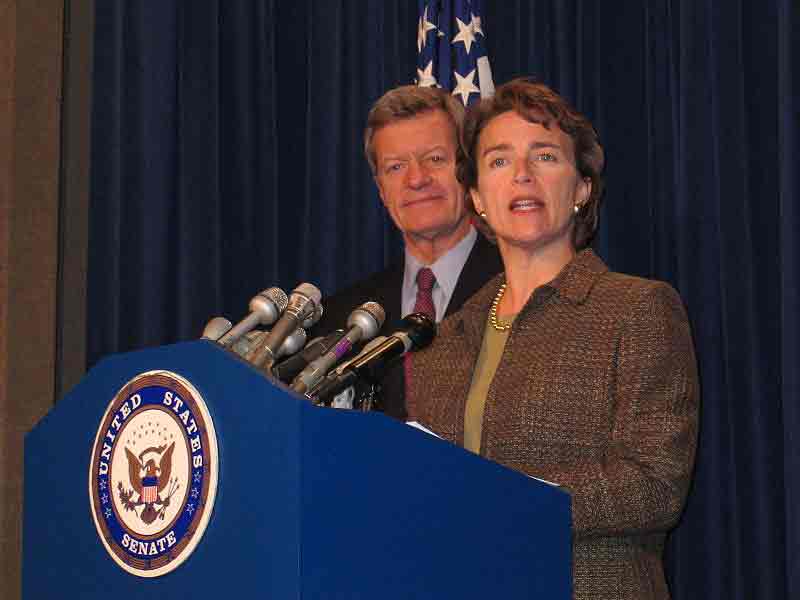A key vote on the fate of financial reform legislation looms today, when the Senate holds its cloture vote (a vote, that is, to begin debate on the bill) at around 5 this evening. Right now, it seems that all 41 Republicans are united against the bill, while most, if not all, Democrats are onboard. Top senators like Chris Dodd (D-Conn.) and Richard Shelby (R-Ala.) continued closed-door negotiations on the bill over the weekend, but it’s pretty apparent that they gained little ground, and that the two parties still have a ways to go before reaching a compromise. While Shelby suggested an agreement wasn’t far off during a Sunday appearance on Meet the Press, he added, “inches are sometimes miles.”
Over the weekend, Dodd, the architect of the current version of financial reform, agreed to beef up his bill’s crackdown on derivatives, the opaque products whose value is derived from an underlying source (anything from the cost of wheat to a mortgage’s price). The derivatives agreement—which would force them to be traded on a transparent exchange, cleared through a central clearinghouse, and would spin off derivatives trading desks from their larger firms—was partly a move to win over two GOP senators, Chuck Grassley (R-Ia.) and Olympia Snowe (R-Me.), who are both staunch proponents of reining in derivatives. The derivatives changes in Dodd’s bill mostly incorporate ideas from a separate derivatives overhaul passed last week by the Senate agriculture committee, a bill Grassley supported. (He was the only Republican on the committee to vote for it.) Whether Dodd won over Grassley, Snowe, or any other Republicans with the derivatives tweaks remains to be seen.
The real crunch time will come this evening, when the full Senate votes on whether to move ahead with the debate or not. Until then, senators will be making brief statements on the floor for and against the bill (C-SPAN 2, if you’re interested). If they pass it, you’ll see a feverish battle on the floor by Democrats to win over a Republican or two and pass the bill. If not, the behind-closed-doors debate will stretch on.
















